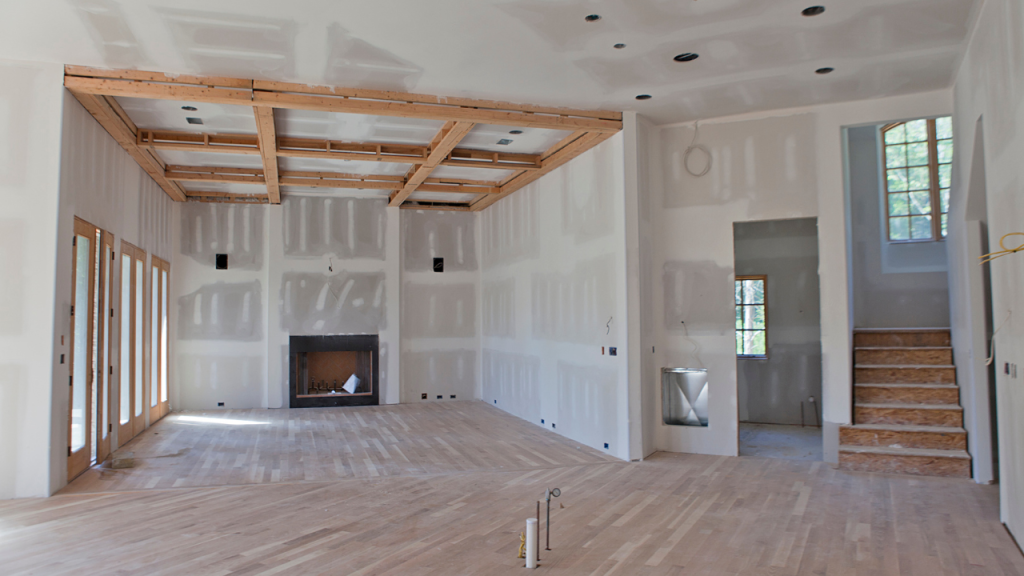Welcome to Listella’s guide for home sellers in all 50 states! Whether you’re a first-time seller or a seasoned homeowner, this guide will give you an easy-to-read, detailed overview of the selling process—plus all the amazing benefits of using Listella, such as upfront appraisals and inspection reports, direct offers (with or without an agent), optional commission offerings, direct communication with buyers, and even the ability for your buyer to submit deposits and close using Bitcoin or Ethereum. So, grab your favorite beverage, and let’s get started!
Table of Contents
- Listella’s Unique Benefits for Sellers
- General Home Selling Basics
- 50-State Guide: Overviews, Forms, and Transaction Tips
- Alabama
- Alaska
- Arizona
- Arkansas
- California
- Colorado
- Connecticut
- Delaware
- Florida
- Georgia
- Hawaii
- Idaho
- Illinois
- Indiana
- Iowa
- Kansas
- Kentucky
- Louisiana
- Maine
- Maryland
- Massachusetts
- Michigan
- Minnesota
- Mississippi
- Missouri
- Montana
- Nebraska
- Nevada
- New Hampshire
- New Jersey
- New Mexico
- New York
- North Carolina
- North Dakota
- Ohio
- Oklahoma
- Oregon
- Pennsylvania
- Rhode Island
- South Carolina
- South Dakota
- Tennessee
- Texas
- Utah
- Vermont
- Virginia
- Washington
- West Virginia
- Wisconsin
- Wyoming
- Helpful Resources & Downloads
- Conclusion & Next Steps

Listella’s Unique Benefits for Sellers
- Upfront Appraisal and Inspection Reports
- Build Buyer Confidence: By providing an upfront appraisal and home inspection report, you position your property as a transparent, trustworthy listing.
- Faster, Smoother Deals: Buyers appreciate the clarity and may feel more comfortable making strong offers quickly.
- Submit Offers Directly (With or Without an Agent)
- Empowerment for You and the Buyer: Sellers can receive direct offers from buyers who choose to go agent-free or from those working with agents. You decide how you want to handle commissions and negotiations.
- Less Middleman, More Control: Streamline the back-and-forth communication and speed up the transaction process.
- Ability to Offer a Commission—Or Not
- Flexible Commission Structure: With Listella, you’re in charge. You can choose to offer a commission to buyer’s agents or opt-out if you’re targeting direct-to-buyer offers.
- Maximize Your Profit: Tailor your listing to your preferences and only pay for what you find valuable.
- Direct Communication With Buyers
- Transparency and Trust: Chat with potential buyers in real time, answer questions, and address concerns directly.
- Prompt Decision-Making: Clear up confusion faster and reduce the risk of delayed or lost offers.
- Crypto-Friendly Transactions
- Accept Earnest Money and Closing Funds in Bitcoin or Ethereum: Open your listing to international or tech-savvy buyers who prefer cryptocurrency.
- Simplify International Sales: Global investors can transact quickly without worrying about traditional bank transfer delays.
General Home Selling Basics
- Prepare Your Home
- Declutter and Depersonalize: Make your home look spacious and welcoming.
- Minor Repairs: Fix any obvious issues—loose doorknobs, leaky faucets, or chipped paint.
- Price Strategically
- Market Analysis: If you’re using an agent, they can provide a Comparative Market Analysis.
- Listella’s Upfront Appraisal: Take advantage of our appraisal option to price your home confidently.
- Market Your Property
- Professional Photos: High-quality images are crucial for online listings.
- Listella.com: Enjoy a streamlined listing process, direct communication, and optional buyer’s agent commissions.
- Review Offers and Negotiate
- Terms to Consider: Price, contingencies (financing, inspection), closing date, and any concessions.
- Listella’s Direct Offer System: Communicate, counteroffer, and finalize terms right on the platform.
- Close the Deal
- Home Inspection & Appraisal: If not already completed upfront, the buyer will typically handle these.
- Finalize Paperwork: Work with your chosen title company or attorney.
- Crypto-Ready: If your buyer chooses, you can handle deposits and closing funds in Bitcoin or Ethereumthrough Listella’s secure platform.

50-State Guide
Below, we outline a brief transaction overview for each state, along with key forms or links to official resources. Requirements vary, so always verify details with local professionals.
Alabama
- Transaction Overview:
- Generally uses title companies or attorneys for closings.
- Disclosure laws lean “buyer beware,” but sellers still must disclose known material defects.
- State Forms: Alabama Real Estate Commission Forms
- Listella Tip: Provide your upfront inspection to build trust in a “buyer beware” environment.
Alaska
- Transaction Overview:
- Escrow closings are common; attorneys optional.
- Unique considerations for rural properties (wells, septic systems).
- State Forms: Alaska Real Estate Commission
- Listella Tip: Let buyers see your property’s condition clearly through an upfront inspection—especially important in remote areas.
Arizona
- Transaction Overview:
- Escrow closings; standard purchase contracts used widely.
- Sellers must provide HOA addendum if applicable.
- State Forms: Arizona Association of REALTORS® Forms
- Listella Tip: Direct offers can help sellers in hot markets like Phoenix or Tucson—often leading to quicker sales.
Arkansas
- Transaction Overview:
- Known as a “buyer beware” state.
- Title companies or attorneys handle closings.
- State Forms: Arkansas Real Estate Commission
- Listella Tip: Upfront inspection helps reassure buyers in a state with fewer mandated disclosures.
California
- Transaction Overview:
- High-value properties; strict disclosure laws (e.g., Natural Hazard Disclosures).
- Escrow closings with licensed escrow officers or title companies.
- State Forms: CAR Standard Purchase Agreement
- Listella Tip: Offering a buyer’s agent commission can attract more showings in competitive areas—though it’s entirely up to you!
Colorado
- Transaction Overview:
- Title company closings; moderate property taxes.
- Popular regions: Denver, Boulder, mountain resorts.
- State Forms: Colorado Real Estate Commission Forms
- Listella Tip: In heated markets, direct communication can mean the difference between multiple offers and a fast close.
Connecticut
- Transaction Overview:
- Attorney state—real estate lawyers typically handle closings.
- Property condition disclosures required.
- State Forms: Connecticut Department of Consumer Protection
- Listella Tip: Let your attorney and Listella handle the heavy lifting so you can focus on negotiating the best price.
Delaware
- Transaction Overview:
- Transfer tax often split between buyer and seller.
- Low property taxes.
- State Forms: Delaware Real Estate Commission Forms
- Listella Tip: Clarify who pays transfer taxes upfront via Listella’s direct chat to avoid last-minute surprises.
Florida
- Transaction Overview:
- Title company or attorney closings.
- Disclosures on flood zones, insurance, and more are common.
- State Forms: Florida Realtors/Florida Bar Contracts
- Listella Tip: In a state prone to hurricanes, an upfront inspection and appraisal can significantly ease buyer concerns.
Georgia
- Transaction Overview:
- Closing attorney required.
- Property taxes vary by county.
- State Forms: Georgia Association of REALTORS® Forms
- Listella Tip: Offering an optional buyer’s agent commission may increase traffic to your listing, especially near Atlanta.
Hawaii
- Transaction Overview:
- Escrow closings; leasehold vs. fee simple properties.
- Strict environmental and coastal regulations.
- State Forms: Hawaii Association of REALTORS® Forms
- Listella Tip: If you’re selling a leasehold property, clarify all terms upfront; Listella’s direct messaging helps buyers understand the nuances.
Idaho
- Transaction Overview:
- Escrow or title closings.
- Disclosures on property condition are required, but “as is” is also common.
- State Forms: Idaho Real Estate Commission
- Listella Tip: Boise’s market is booming—leverage upfront inspection to stand out in a fast-paced environment.
Illinois
- Transaction Overview:
- Attorney review period is standard.
- Chicago rules can differ from the rest of the state.
- State Forms: Illinois REALTORS® Forms
- Listella Tip: Highlight your upfront inspection and appraisal to streamline the attorney review phase.
Indiana
- Transaction Overview:
- Title company closings; property disclosures required by law.
- Relatively affordable.
- State Forms: Indiana Association of REALTORS®
- Listella Tip: Offer direct communication through Listella for quick buyer Q&As—could shorten your time on market.
Iowa
- Transaction Overview:
- Closing processes can vary by region.
- Agriculture-related property features often relevant.
- State Forms: Iowa Association of REALTORS®
- Listella Tip: If selling farmland or rural property, an upfront appraisal helps ensure accurate pricing.
Kansas
- Transaction Overview:
- Straightforward deals, typically using standardized contracts.
- Often uses title companies for closings.
- State Forms: Kansas Real Estate Commission
- Listella Tip: Flexibility on buyer’s agent commission can attract more eyes, especially in suburban markets.
Kentucky
- Transaction Overview:
- Combination of attorney/title closings.
- Seller disclosures required; watch for radon tests in some areas.
- State Forms: Kentucky Real Estate Commission
- Listella Tip: Upfront inspection is a big trust factor—particularly valuable in rural areas.
Louisiana
- Transaction Overview:
- Napoleonic code legal system; closings often involve notaries.
- Flood zones are a big consideration.
- State Forms: Louisiana Real Estate Commission
- Listella Tip: Accepting crypto can attract international buyers, especially for properties in popular areas like New Orleans.
Maine
- Transaction Overview:
- Attorney closings common.
- Water and septic considerations in rural properties.
- State Forms: Maine Real Estate Commission
- Listella Tip: Provide details on heating sources and winterization—upfront info can help you sell faster in cold climates.
Maryland
- Transaction Overview:
- Transfer/recordation taxes vary by county.
- Attorneys or title companies can close; high-cost areas near D.C.
- State Forms: Maryland REALTORS®
- Listella Tip: Use the platform’s direct chat to negotiate tax splits and keep the deal moving.
Massachusetts
- Transaction Overview:
- Attorney state; typically a two-step (Offer + Purchase & Sale) process.
- High property values near Boston.
- State Forms: Massachusetts Association of REALTORS®
- Listella Tip: Provide a thorough upfront inspection to shorten the due diligence timeline.
Michigan
- Transaction Overview:
- Title or attorney closings; “Homestead” vs. “Non-Homestead” tax rates.
- Sellers must provide standard disclosures.
- State Forms: Michigan Realtors®
- Listella Tip: Clarify property tax status (homestead vs. vacation property) in your listing description.
Minnesota
- Transaction Overview:
- Title company closings; radon disclosure mandatory.
- Strong Twin Cities market.
- State Forms: Minnesota Association of REALTORS®
- Listella Tip: Highlight any radon mitigation system in your upfront inspection—buyers love that clarity.
Mississippi
- Transaction Overview:
- Generally uses attorneys or title companies.
- Fewer disclosure requirements, but must disclose known defects.
- State Forms: Mississippi Real Estate Commission
- Listella Tip: Strengthen trust by providing a detailed upfront inspection in this buyer-beware climate.
Missouri
- Transaction Overview:
- Title company closings.
- Standard real estate contracts widely used.
- State Forms: Missouri Real Estate Commission
- Listella Tip: Outline any HOA or special assessments in the listing to reduce buyer hesitation.
Montana
- Transaction Overview:
- Escrow closings; watch water/mineral rights for ranch or large parcels.
- High demand in scenic/resort areas.
- State Forms: Montana Board of Realty Regulation
- Listella Tip: Provide thorough property details—especially land use and water rights.
Nebraska
- Transaction Overview:
- Title company closings; required seller disclosure form.
- Ag communities might have farmland specifics.
- State Forms: Nebraska Real Estate Commission
- Listella Tip: If you’re selling farmland, an upfront appraisal is crucial for both local and out-of-state buyers.
Nevada
- Transaction Overview:
- Escrow closings; many communities have HOAs with separate fees.
- Seller’s Real Property Disclosure (SRPD) is mandatory.
- State Forms: Nevada Real Estate Division
- Listella Tip: Upfront inspection can highlight the property’s condition in a market where buyer concerns may include desert climate or HOA regulations.
New Hampshire
- Transaction Overview:
- Attorney closings common; no general sales or income tax, but higher property taxes.
- Seller property disclosure recommended.
- State Forms: New Hampshire Real Estate Commission
- Listella Tip: Outline any property tax details; direct chat is perfect for clarifying these for out-of-state buyers.
New Jersey
- Transaction Overview:
- Attorney review period standard; high property taxes.
- Closing typically involves title companies or attorneys.
- State Forms: New Jersey Realtors®
- Listella Tip: Negotiate with buyers directly through Listella to settle who pays transfer taxes (often a hot topic).
New Mexico
- Transaction Overview:
- Escrow closings; watch for adobe-style homes and radon.
- Low property taxes.
- State Forms: New Mexico Real Estate Commission
- Listella Tip: Upfront inspection can address unique home construction (adobe) and reassure buyers about condition.
New York
- Transaction Overview:
- Attorney state; big differences between NYC co-op/condo sales and upstate single-family homes.
- High closing costs in some areas.
- State Forms: NY State Division of Licensing Services
- Listella Tip: Co-ops require additional documentation—Listella’s direct chat helps you quickly respond to board inquiries.
North Carolina
- Transaction Overview:
- Attorney closings; “Due Diligence” fee is common.
- Strong markets in Raleigh, Charlotte.
- State Forms: NC Association of REALTORS®
- Listella Tip: Let potential buyers see your upfront inspection so they’re comfortable paying a due diligence fee.
North Dakota
- Transaction Overview:
- Escrow closings common; watch mineral rights for rural properties.
- Oil boom areas can fluctuate in demand.
- State Forms: North Dakota Real Estate Commission
- Listella Tip: Indicate mineral rights status in your listing. Clear communication helps close faster.
Ohio
- Transaction Overview:
- Title company closings; standard property disclosure required.
- Varying property taxes across counties.
- State Forms: Ohio Division of Real Estate & Professional Licensing
- Listella Tip: Provide up-to-date property condition info—buyers in Ohio often look for radon and termite checks.
Oklahoma
- Transaction Overview:
- Some areas still use abstracts of title; tornado insurance is common.
- Title companies or attorneys can handle closings.
- State Forms: Oklahoma Real Estate Commission
- Listella Tip: If you have an updated abstract or title report, upload it to Listella for buyer confidence.
Oregon
- Transaction Overview:
- Escrow closings; strict land-use laws might affect rural properties.
- Popular markets in Portland, Bend.
- State Forms: Oregon Real Estate Forms
- Listella Tip: Provide info on any local zoning restrictions—buyers appreciate transparency.
Pennsylvania
- Transaction Overview:
- Transfer tax often split, but the rate varies (Philly is higher).
- Title or attorney closings.
- State Forms: Pennsylvania Association of REALTORS®
- Listella Tip: Direct negotiation on Listella can help finalize who pays the local transfer tax quickly.
Rhode Island
- Transaction Overview:
- Attorney closings; coastal properties often require flood insurance.
- Seller disclosure form mandatory.
- State Forms: Rhode Island Department of Business Regulation
- Listella Tip: Upfront flood elevation certificate can attract coastal buyers looking for clarity.
South Carolina
- Transaction Overview:
- Attorney closings required; strong market in Charleston, Greenville, Myrtle Beach.
- Flood insurance is a factor in coastal areas.
- State Forms: South Carolina Real Estate Commission
- Listella Tip: Arm buyers with an upfront inspection—particularly for termite and moisture issues.
South Dakota
- Transaction Overview:
- Title company closings; farmland considerations in rural areas.
- Seller disclosure form is required.
- State Forms: South Dakota Real Estate Commission
- Listella Tip: Highlight any farmland or ranch features in your listing to attract the right audience.
Tennessee
- Transaction Overview:
- Title company closings; seller disclosures mandated.
- Rapidly growing markets in Nashville, Knoxville.
- State Forms: Tennessee Real Estate Commission
- Listella Tip: Provide an upfront appraisal to stand out in competitive areas like Nashville.
Texas
- Transaction Overview:
- Title company closings; watch for HOAs, MUD districts, or PID disclosures.
- No state income tax, but property taxes can be high.
- State Forms: Texas Real Estate Commission Forms
- Listella Tip: If you’re in a hot market (Austin, Dallas), direct offers can speed up the process and maximize your sale price.
Utah
- Transaction Overview:
- Escrow closings; strong market around Salt Lake City.
- Sellers must provide a property condition disclosure.
- State Forms: Utah Division of Real Estate
- Listella Tip: Upfront appraisal can help set a competitive price in a rapid-growth region.
Vermont
- Transaction Overview:
- Attorney closings; older homes often require special attention for heating, septic, or well.
- Higher reliance on property taxes.
- State Forms: Vermont Secretary of State Real Estate Commission
- Listella Tip: Provide detailed inspection info for older farmhouses—buyers will appreciate the transparency.
Virginia
- Transaction Overview:
- Attorney or title company closings; Northern VA is quite competitive.
- Sellers must complete a Residential Property Disclosure.
- State Forms: Virginia REALTORS®
- Listella Tip: Offering a small buyer’s agent commission may help you stand out in a busy Northern VA market.
Washington
- Transaction Overview:
- Escrow closings; Seattle area is high-demand, often multiple offers.
- Sellers must provide Form 17 property disclosure.
- State Forms: NWMLS Residential Real Estate Forms
- Listella Tip: Buyers often waive contingencies—your upfront inspection can make your listing even more attractive.
West Virginia
- Transaction Overview:
- Title company or attorney closings; mountainous terrain can affect septic and well systems.
- Lower property taxes.
- State Forms: West Virginia Real Estate Commission
- Listella Tip: Use direct communication to clarify any concerns about rural infrastructure (roads, wells, etc.).
Wisconsin
- Transaction Overview:
- Title company closings; seller must complete a Real Estate Condition Report.
- Radon testing is common in some areas.
- State Forms: Wisconsin REALTORS® Association
- Listella Tip: Provide radon test results upfront to speed up negotiations.
Wyoming
- Transaction Overview:
- Title company closings; resort areas (Jackson Hole) can command high prices.
- Low property taxes and no state income tax.
- State Forms: Wyoming Real Estate Commission
- Listella Tip: Highlight your property’s unique features—mountain views, ranch potential, etc.—and consider crypto offers for a global audience.
Helpful Resources and Downloads
- Listella’s Free Home Seller Checklist (PDF)
- Organize every step, from staging to closing.
- Home Preparation Guide (PDF)
- A HUD-inspired resource to get your home “show-ready.”
- Mortgage Payoff and Equity Calculator (Online Tool)
- Understand your equity before setting your price.
- HUD’s Settlement Costs Booklet (HTML/PDF)
- Learn about closing costs and the settlement process from a seller’s perspective.
- FEMA Flood Map Service Center
- Verify if your property is in a flood zone—useful info to share with buyers.
- Lead-Based Paint Disclosure (EPA Guidelines)
- Mandatory for homes built before 1978 in many states.
- Crypto Basics for Real Estate (Listella Blog)
- Learn how Bitcoin or Ethereum transactions work for deposits and closing.
Conclusion and Next Steps
Selling your home is a big move—and now you have a 50-state roadmap plus Listella’s incredible features at your fingertips. With upfront appraisal and inspection reports, flexible commission options, direct buyer communication, and the ability to accept crypto payments, you can tailor your selling experience to match your goals perfectly. Listella is here to simplify your real estate journey. Thanks for reading, and best of luck on your home-selling adventure!
Disclaimer: This guide is for informational purposes only and not legal, financial, or tax advice. Always consult local professionals and verify state-specific requirements before listing your property.








































